Mortgage Blogs
Stay up to date with the recent industry news and mortgage trends.

Should I Renew or Refinance My Mortgage? Insights from a Trusted Toronto Mortgage Broker
Millions of Canadians are nearing the end of their mortgage term, eager to secure the best possible rate. While many focus on renewing their existing mortgage, they may overlook the possibility of refinancing—a decision that could significantly impact their financial outlook.
As a Toronto mortgage broker, understanding the difference between renewal and refinancing can help you make the best choice for your financial future. Let's break it down.
What’s the Difference Between Renewal and Refinance?
Renewal: Keeping Your Mortgage Active
At the end of your mortgage term (commonly 5 years), you need to renew your loan to keep it active. When you renew, your mortgage balance and amortization period (the total time you have to pay it off) stay the same. While you can renegotiate your interest rate, you can’t borrow additional funds or change the original loan amount.
Example:
Imagine you bought a home in June 2020 with a mortgage of $400,000. After a 5-year term at 1.70%, your remaining mortgage balance will be around $332,939.71, assuming no extra payments. When you renew, you’ll need to renegotiate the interest rate and select a new term based on the remaining balance.
Refinance: Restructuring for Financial Flexibility
Refinancing allows you to restructure your mortgage. With refinancing, you can:
✅ Change the loan amount
✅ Extend the amortization period
✅ Access your home’s equity for financial goals
This flexibility gives you the opportunity to lower monthly payments, consolidate debt, or access cash for projects like home renovations or investments.
Example:
Suppose your home’s value has increased significantly. By refinancing, you could borrow more against that increased equity, giving you funds for projects like a kitchen renovation, starting a small business, or consolidating high-interest debt.
The Impact of Rising Rates: What Toronto Homeowners Need to Know
If you secured a 1.70% fixed rate five years ago, today’s rates—often exceeding 4.50%—might feel like a shock. Simply renewing may increase your monthly payment unexpectedly. However, refinancing offers greater control, allowing you to adjust monthly payments by extending your amortization or tapping into equity to manage financial priorities.
A Side-by-Side Comparison: Renewal vs. Refinance

A Side-by-Side Comparison: Renewal vs. Refinance
Scenario Original Mortgage Renewal Refinance
Loan Amount $400,000 $332,939.71 $332,939.71
Amortization 25 years 20 years remaining Extend to 30 years
Interest Rate 1.70% 4.19% 4.54%
Monthly Payment $1,636.46 $2,044.65 $1,686.49
Rates are for illustrative purposes only. Consult a trusted Toronto mortgage broker for accurate, up-to-date options.
Key Mortgage Terms Explained by a Toronto Mortgage Broker
Amortization Period
The amortization period is the total length of time to pay off your mortgage. For example, a 25-year amortization means your mortgage is structured to be paid in full over 25 years.
Shorter amortization → Higher monthly payments, less interest paid overall
Longer amortization → Lower monthly payments, more interest paid over time
Term
A mortgage term is the length of your current mortgage agreement—commonly 1 to 5 years in Canada. When your term ends, you must renew or refinance at the prevailing rates and conditions.
Equity
Equity is the portion of your home you truly own. It's calculated by subtracting your outstanding mortgage balance from your home’s current market value.
Example: If your home is valued at $600,000 and your mortgage balance is $400,000, you have $200,000 in equity. Refinancing allows you to leverage this equity for various financial goals.
Payment Shock
This occurs when mortgage rates increase significantly upon renewal, causing a sharp rise in your monthly payments. Refinancing may help mitigate this by adjusting your amortization or accessing equity to maintain manageable payments.

Renew vs. Refinance: Which Option Is Best for You?
Choosing between renewal and refinancing depends on your financial objectives:
✅ Renew if you want to keep your mortgage simple and avoid new fees.
✅ Refinance if you need to borrow more money, extend your amortization, or consolidate debt.
A trusted Toronto mortgage broker can assess your financial situation and recommend the best course of action.
Common Mistakes to Avoid When Choosing a Toronto Mortgage Broker
Failing to Compare Rates – Don’t automatically renew with your existing lender without exploring better deals.
Ignoring Prepayment Penalties – Refinancing before your term ends may trigger fees.
Overextending Your Amortization – Stretching your mortgage too long may reduce monthly costs but increase total interest paid.
Skipping Professional Guidance – A Toronto mortgage broker can help you find the best rates and terms tailored to your needs.
FAQs About Toronto Mortgage Brokers
1. What does a Toronto mortgage broker do?
A Toronto mortgage broker helps you secure the best mortgage rates by connecting you with multiple lenders, negotiating terms, and guiding you through the mortgage process.
2. How do I know if a mortgage broker is trustworthy?
Look for brokers who are licensed, well-reviewed, and affiliated with reputable organizations like the Mortgage Professionals Canada (MPC).
3. Are mortgage brokers worth it in Toronto?
Yes! Mortgage brokers often have access to exclusive rates and can provide personalized advice tailored to Toronto’s housing market.
4. How much does a Toronto mortgage broker charge?
Most mortgage brokers are compensated by the lender, meaning their services are often free to borrowers.
5. Can a mortgage broker help with bad credit?
Absolutely. Mortgage brokers specialize in finding lenders who work with clients who have less-than-perfect credit histories.
6. What’s the difference between a bank and a mortgage broker?
Banks offer their own mortgage products, while brokers provide access to multiple lenders, increasing your chances of securing the best rates and terms.
Conclusion: Find the Right Mortgage Strategy with a Toronto Mortgage Broker
When faced with renewal or refinancing, don’t just focus on the interest rate. Assess your long-term financial goals, cash flow needs, and home equity potential.
A professional Toronto mortgage broker can guide you through the process, ensuring you secure the best mortgage strategy tailored to your needs.
Ready to explore your options? Contact a trusted Toronto mortgage broker today and take control of your financial future!
Trusted Guidance, Proven Success

Alan Borcic | Mortgage Agent
(647) 694-7033
Assistance Hours
Mon – Fri 9:00am – 8:00pm
Saturday/Sunday – CLOSED
Get In Touch With
(647) 694-7033
Assistance Hours
Mon – Fri 9:00am – 8:00pm
Saturday/Sunday – CLOSED
Contact Us


© 2025 Mortgage With Alan - All Rights Reserved.
Alan Borcic, Mortgage Agent M24001034
BRX 13463
